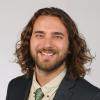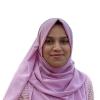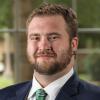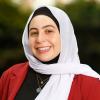Graduate Students

Md Sabbir Ahmed

J. Michael Bertsch
I study how our sense of touch is used to explore the physical world, and ways this knowledge can improve technology, healthcare, and human connection

Matthew Gunn

Lauren Horde
Systems Engineering combined my interests in human-technology interaction and psychology, which grew during my undergraduate degree. This field pushes me to take a holistic and analytical approach to complex problems while working towards a real-world solution.
Ariful Islam

Jalen M Jackson

Subiya Khanum Rahaman Khan
I am supporting a CCALS-led project funded by the VTRRC to identify and analyze hydrogen and hydrogen-hybrid use cases in Southern Virginia

Woosung Kim

Justin Klingenberger

Ekim Koca
My dissertation focuses on creating a Fitts' Law correction to increase technology accessibility for people with tremor dominant movement disorders.
Zack Landsman
I'm working to better understand the delivery of therapeutic touch, by improving methods of sensing the delivery and analysis.

Beatrice Li
I study how transparency shapes privacy perceptions, user trust, and data-sharing decisions in smart buildings.

Jiebei (Isabelle) Liu
Deep learning for 3D medical image segmentation; multimodal frameworks fusing imaging and clinical text to advance precision health.
Xionghuan Luo
My research studies skin deformation during massage therapy using computer vision to better quantify the effectiveness of these treatments.

Megan Marcellin
My research develops data-driven methods for modeling risk and resilience, informing robust decision-making in complex systems.

Viviana Milla-Angeles

Seyed Hamidreza Nabaei (Reza)
I develop AI-enabled cyber‚ physical systems using ML, NLP, and computer vision to automate infrastructure inspection & enable precision agriculture.

Eleanore Scheer
My research focuses on human factors approach to improving the quality and accessibility of healthcare for individuals with disabilities and chronic medical conditions.

Yeonbin Son

Skye Taylor
Skye's dissertation research focuses on improving the design and reliability of subjective measures of human workload, namely the NASA-TLX.


Aya Yehia
My work uses graph neural networks to predict subsurface damage in structures.